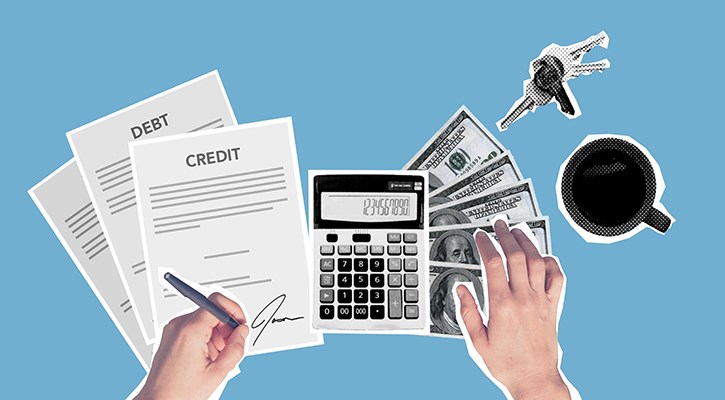
Your mortgage is probably the biggest debt you’ll ever have, on the most expensive purchase you’ll ever make. So it’s not hard to imagine how terrific it would feel to clear that debt faster than planned and become the full owner of your home.
You can do that through overpaying on your mortgage, either on a monthly basis or ad-hoc. The extra money reduces the capital outstanding, which in turn cuts the interest payable each month.
Overpaying has several benefits, says Miles Robinson, head of mortgages at the online mortgage broker Trussle: “Not only does overpayment cut down the time it will take to repay your mortgage in full by months or even years, but it also means you will pay less money overall, by reducing the amount of debt outstanding and therefore the interest payable on it.”
How Much can you Save by Overpaying?
Robinson gives the example of a property worth £251,000 that has an 80% loan to value (LTV) mortgage worth £200,800, with a 30-year term and a mortgage rate of 2.14%.
By making a one-off 10% overpayment of £20,080, you’d save almost £16,400 in interest and reduce the mortgage term by four years. Regular overpayments of £500 a month for the whole term of the mortgage would save £35,700 and clear the mortgage more than 14 years early.
Even a small overpayment can make a significant difference. If you overpaid by £50 a month in the above scenario, you would save £6,551 in interest and shorten the mortgage term by two and a half years, according to Trussle.
In addition, when it comes to remortgaging, because you have reduced the amount of capital outstanding, you can look at the cheaper deals available to borrowers who need to borrow less relative to the property value (lower loan to valuation or LTV).
What to Consider When Overpaying Your Mortgage?
There are several issues to consider before you take action - particularly given that mortgage interest rates are so low at the moment and likely to remain that way for the foreseeable future.
- Do you have more expensive debts? Mortgages come with very low interest rates compared with credit cards, store cards and overdrafts, so it makes sense to clear them first.
- Do you have an emergency fund that you could draw on if the boiler blew up or you lost your job? It’s great to whittle away at a long-term debt, but important to keep easily accessible funds for shorter-term calamities. It would also be shortsighted to focus on overpaying the mortgage and leave yourself short of cash for home projects or big-ticket purchases, or over-dependent on credit cards and unsecured loans.
- There’s an argument that with rates so low, your money would work harder for you if you invested it in your pension (where, importantly, it would also get a cash kicker in the shape of full tax relief) or an Isa (where it would grow free of tax and you could access it relatively easily). You are currently unlikely to find savings accounts paying rates higher than your mortgage interest rate, but that’s theoretically another possibility.
- Your scope to overpay may well be limited by the terms of your mortgage. On most fixed-rate deals, lenders will allow you to overpay up to 10% of the value of the outstanding debt each year without penalising you. If you try to pay more than that during the deal period, you’ll be hit with an early repayment charge (ERC) on the excess overpayment above what’s allowed. Variable rate mortgages such as trackers do not generally have a limit on the amount you can overpay, or an ERC. But do check your own lender’s terms and conditions.
How to Overpay Your Mortgage
To make regular overpayments, either contact your lender and ask them to raise the amount you pay by direct debit each month, or set up a separate standing order through which you make a monthly top-up payment.
Either way, you can cancel or amend the extra if needed, because it’s over and above what the lender requires you to pay.
It’s important, if you make ad-hoc overpayments (or regular ones through a standing order), to tell your lender that you want the cash to reduce the debt and therefore the mortgage term, not the value of your monthly payments.
Consider an Offset Mortgage
If you have a decent chunk of savings and want to reduce your mortgage term, you could consider moving onto an offset mortgage when you next remortgage.
This links your mortgage with savings accounts held with the same provider, so that interest is only payable on the mortgage balance over and above your linked savings.
If you had a £200,000 mortgage and £20,000 in savings, for instance, you would only pay interest on £180,000. The more savings in your accounts, the less interest is payable from your fixed monthly mortgage payments and the more capital is repaid.
But you still have instant access to those savings if you need them. Offset mortgages also tend to be very flexible, so you may be able to overpay and draw down on the mortgage itself if you want to.

























